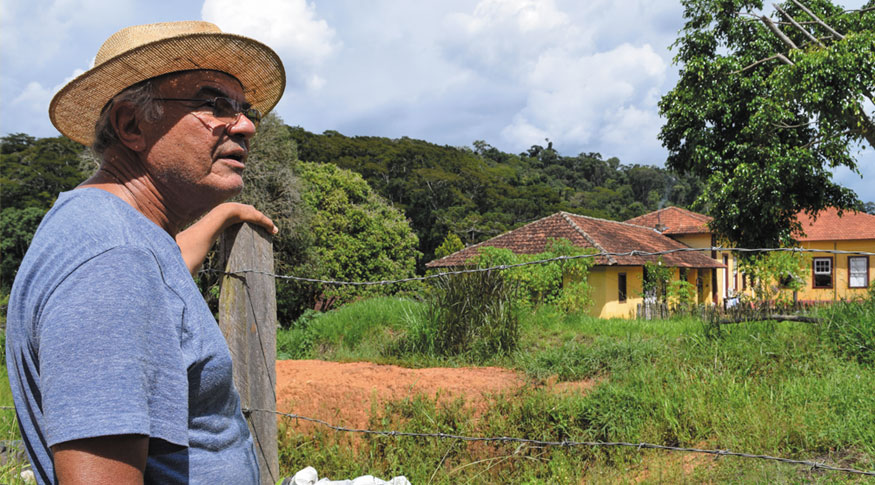Retratos Magazine
Booming, organic farming gathers all elements of sustainable production
August 05, 2019 11h15 AM | Last Updated: December 30, 2019 04h20 PM
Data from the IBGE´s Census of Agriculture unveil that the number of agricultural establishments with the certification of organic farming increased more than 1,000% in Brazil between 2006 and 2017, jumping from 5,106 to 68,716.
That is an important advance for Brazil, which is one of the biggest consumers of agrotoxins in the world, according to the Heinrich Böll Foundation´s Atlas of the Agribusiness. Despite the advance, there is still much space to grow, since only 1.4% of the properties were certified in 2017.
Minas Gerais is the state with the biggest number of agricultural establishments of organic farming: they are nearly 11,000. It was followed by Pernambuco, Paraná, São Paulo and Rio Grande do Sul. Some of the major food produced this way are coffee, cacao, soybeans, sugar, tropical fruits and rice, as well as livestock.
Nilmar Arbex de Castro, instructor of the National Service of Rural Learning - Senar of Minas Gerais and advisor in the area of organic farming, agroecology and medicinal plants, points out an exponential increase of this production model in Brazil and in the world.
"A number of countries have already established laws that prioritize organic farming, even closing conventional activities", explains him. He states that the cases of poisoning in the country are worrying, due to the use of pesticides. "we have to change to a more rational and less aggressive way of production".
According to the expert, the advantage of the organic products is that it is free from residues, pesticides and pollutants, besides having a nutritional quality above that of the conventional products – in terms of biological value, sugar level and vitamins.
This is because synthetic and chemical products are not allowed and cropping techniques always use natural ingredients to fertilize the soil and fight against pests. Besides the benefits for health, organic farming also provides economic vantages to the region. As it requires more workforce, it generates jobs and reduces the rural exodus, as explained by Castro.
The requirement for quality items that affect less the environment are factors pointed out by the advisor for the trend to increase both the supply and demand for organic products. In this regard, the organic certification stamp is a differential that provides consumers with a guarantee of good origin.
To be accredited, the producer should certify that he/she works within the guidelines of organic farming, from the preparation of the soil up to the final sale, taking into account the preservation of the environment and life quality of the workers.
Certified organic producer
In the José Nicácio Itagyba´s farm in Carmo de Minas, in the south of the state, the workers and their families have free lodging near the workplace, with running water and school bus at the door. They also earn wages above the average in the region, they are compensated for attendance and they have hour banks. Finally, they do not have to handle chemicals in the crops.

All this because the property follows the guidelines of organic farming, which aims at an environmental, economic and socially sustainable production. Itagyba takes notes of all the processes carried out in the crop. In order to maintain the certification stamp, he is periodically visited by auditors who check whether the farm remains working in the organic way.
One of the techniques to naturally strength the plants and enrich the soil is called crop consortium, i.e, the alternate planting of two crops in the same area.
"When I came here, 250 thousand coffee trees were already planted. We planted 18 thousand banana trees. I will also introduced lemon", says the producer. In other areas, he also plants beans and garlic, all of them traded in São Paulo.
Check the complete story in Sustentabilidade de Ponta a Ponta - Revista Retratos 17.




















